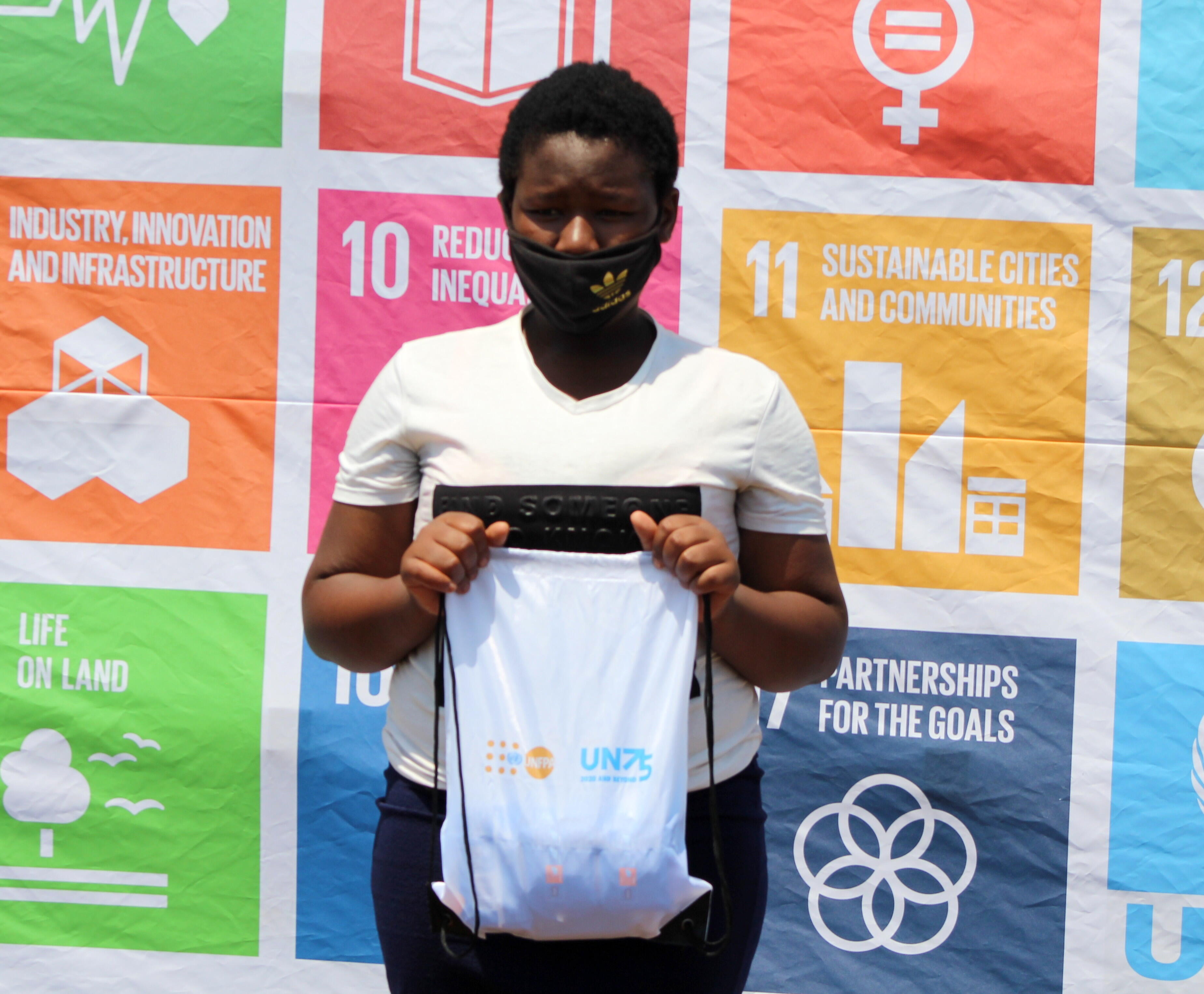The year 2020 will go down as one of the worst years as far as learning is concerned. Due the COVID-19 pandemic, many children were deprived their right to education as learning institutions were forced to close. At resumption of a few grades, anecdotal evidence seems to suggest that some girls did not return to class due to pregnancy and other challenges.
15 year Nondumiso Shongwe from Ntuthwakazi community in the Lubombo region is among those who returned to school. She is doing Grade 7 at Ikhwezi Primary School. On the 24th of October 2020, she attended a community meeting where she received a dignity pack. Her face quickly switched emotions; from shocked to smiley.
“Is this really mine,” Nondumiso inquired, in disbelief. “These sanitary towels will help me a lot. I will sit for my final examinations with confidence now. The fear of being on my period will be gone for a while.”
The Lubombo region is leading in terms of poverty in the Eswatini with 71.2 percent of the population living under the poverty line. As a young girl, Nondumiso dreams of completing school and being able to find employment to get her family out of the poverty. That’s why staying in class is important to her.
“Without proper equipment, learning during menstrual periods is stressful. The other materials I sometimes use are not as effective as sanitary towels, so during those days I become uncomfortable and lose focus in class,” she explained.
In celebrating the UN Day 2020, UNFPA in Eswatini revisited a 26 year promise upholding the dignity of women and girls during their menstrual period. This forms part of activities discussed during the Nairobi summit where countries reaffirmed their commitments of removing the stigma on menstrual hygiene. Through this effort, UNFPA distributed a total of 100 dignity packs to women and girls in the community of Ntuthwakazi. Inside each pack was a bath soap, a deodorant, a towel and 2 packets of sanitary towels. These were donated together with some food parcels contributed by UN staff.
In explaining the idea behind making the donation of dignity packs, Margaret Thwala-Tembe shared UNFPA’s vision of enabling young people achieve their potential.
“Access to proper menstrual hygiene management commodities is a priority,” said Thwala-Tembe. "Children had lost valuable learning time during the COVID-19 enforced break. Learning has resumed partially now, we should therefore do the best we can to keep young girls in class, even during their menstrual periods.”
Appreciating the gesture, Make Ndzinisa, who is a community member, painted a vivid picture of the hygiene challenges in the community.
“Our biggest challenge is linked to good health and hygiene,” she said. “This particularly affects women and girls during their period as they cannot practice good hygiene habits as expected.”
Ndzinisa further elaborated that the hygiene challenge was caused by lack of water in the area.
“The scarcity of water makes our lives very difficult. We travel very long distances to the water source which forces us to use it sparingly. Most families have resorted to water rationing now. Bathing is only allowable when one is supposed to travel somewhere,” she concluded.


